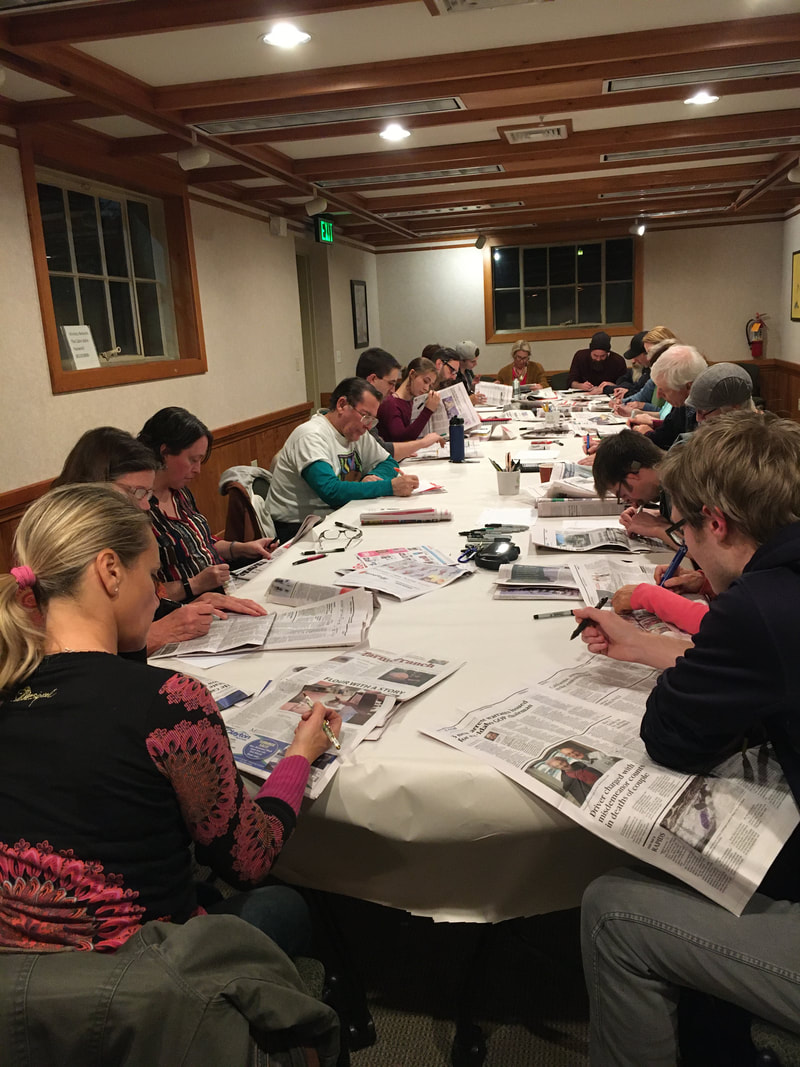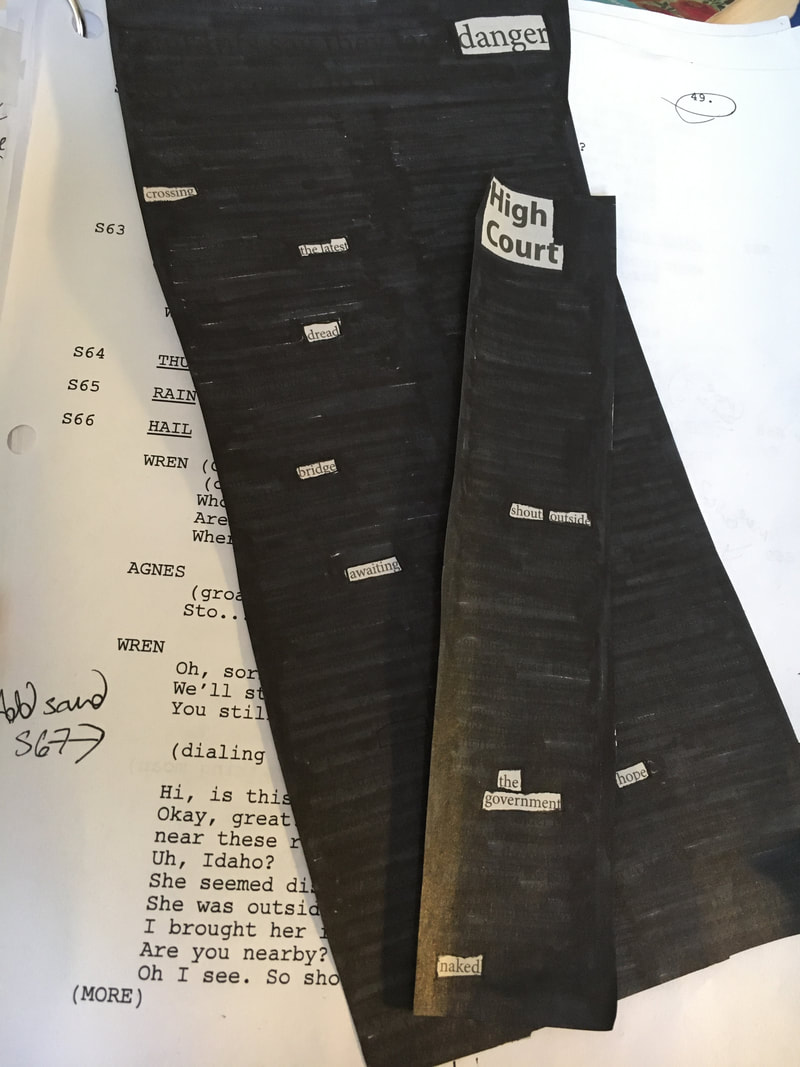|
Nyquil
hit by a flood I don't miss the benzos I used to take swimming through JELLO head sucks in water wavering back and forth head filled with stupid a journey to sea bottom under a log buried I hear a beeping followed by a shimmer someone's alarm it was a car, then music, then magic like a hallucination I was here, then I wasn't snot in my nose I'm not here to impress anyone thank goodness, today I might fail right back under the covers I used to like being sick
1 Comment
The Art of SubtractionThis Tuesday at The Cabin, we focused on creating through deleting. There is an abundance of creative material, talk and words out in the world today. Some people think there are too many words. Some artists think the best thing to do about this is take away, rather than add. We can create by subtracting, stripping down, erasing. However you feel about this, much of our work as artists and writers is about taking the parts of the world that matter to us and leaving out the rest. I'm a big fan of Austin Kleon -- his books, his weekly newsletters, his art. He's famous for his books on the creative process, like Steal Like An Artist, Show Your Work and Keep Going. Before that, he came out with a book of Newspaper Blackout poetry, where he finds poems embedded in New York Times articles. We all have the same alphabet and words available to us. Now we can do something with the words someone else put down. We don't have to start with a blank canvas. I've always wanted to bring this process into a Cabin workshop and did so Tuesday. We talked about Kleon's work, I showed the above and below videos and we perused models of newspaper blackout poetry examples through this website. I only wish I had stumbled upon this video tutorial in time to share with the group: Regardless, we had Sharpies, pens and fat markers ready to go. I handed out the 20+ newspapers I'd been collecting. (Thanks to my friends, neighbors and colleagues for their contributions!) We tore through them -- mostly Idaho Statesmans but one New York Times. We focused on scanning articles as Kleon talks about, instead of reading. We put boxes around words we found, loved, and wanted to keep. Then we blacked out the rest. Before Tuesday, I'd done this in one other workshop, with 3rd and 4th graders. This process was especially useful for the students who didn't like writing. (At least, those who didn't at first.) I've found the most successful poems have more words blacked out. They transform the articles, as Kleon says. They play with them as writing partners, rather than summarizing journalism. Transforming is one way to make something new, something all your own. To steal like an artist. You can consider making copies of your own work too. Then black out, erase, cut up – choosing what few words to stand out. We spent a lot of time making blackout poetry -- a good 30 minutes. Some made a few pieces. It was a bit like working on a puzzle or a collage. I found the process very calming, also, different from the cathartic feelings I can experience when I put a lot of words on a page. Almost everyone shared one of their poems. Then we took our favorite poem, or a line we liked especially, and used that as a launching point. Writing that line on paper, we then wrote something new out of those words. Some wrote new poems, some stories, reflections. When you make newspaper blackout poetry for yourself, think about what's fun about it, what you can use from this exercise in your own work, or perhaps discover that this is your new favorite way of writing. My poems from Tuesday:
danger crossing the latest dread bridge awaiting hope And one for Idaho's recent Election Day: High Court shout outside the government naked Maybe it would be good to combine these two. Enjoy blacking out words, erasing and deleting. Thank you for writing with me. XOXO, H |
Like what I'm posting? You can leave me a tip!
$1, $10, $100, whatevs :) Heidi KraayProcess notes on a work in progress (me). This mostly contains raw rough content pulled out of practice notebooks. Occasional posts also invite you into the way I work, with intermittent notes on the hows and whys on the whats I make. Less often you may also find prompts and processes I've brought to workshops, as well as surveys that help me gather material for projects. Similar earlier posts from years ago can be found on: Archives
April 2024
Categories
|



 RSS Feed
RSS Feed